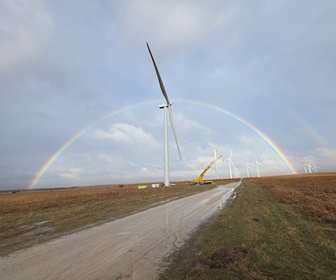The Baker-Polito Administration, in partnership with the State of Rhode Island and the Bureau of Ocean Energy Management (BOEM), have announced grants worth US$ 1.1 million to four institutions to support regional fisheries studies that will collect data vital to the ongoing development of the offshore wind industry in North America.
The studies will be managed by MassCEC in coordination with BOEM, the National Marine Fisheries Service, and Massachusetts and Rhode Island fishery resource agencies. The program focuses on three priority areas of research: fishery resource studies, seafloor habitat studies, and technical studies.
The four institutions receiving funding are:
INSPIRE Environmental
INSPIRE will conduct a two-year acoustic tagging and tracking study of highly migratory species such as tuna and sharks at popular recreational fishing spots in the wind energy areas, in order to provide new baseline data on highly migratory species.INSPIRE will also develop standard approaches to synthesizing, visualizing and disseminating high-resolution acoustic and imagery data for mapping of seabed habitat in the wind energy areas.
INSPIRE will conduct a two-year acoustic tagging and tracking study of highly migratory species such as tuna and sharks at popular recreational fishing spots in the wind energy areas, in order to provide new baseline data on highly migratory species.INSPIRE will also develop standard approaches to synthesizing, visualizing and disseminating high-resolution acoustic and imagery data for mapping of seabed habitat in the wind energy areas.
University of Massachusetts Dartmouth (UMD)
UMD will conduct towed net surveys for larval lobster and fish neuston (small fish organisms) throughout the wind energy areas. This 18-month study will provide baseline information on the spatial and temporal distribution of species at their earliest life stage, during which they are transported by tides and currents.
UMD will conduct towed net surveys for larval lobster and fish neuston (small fish organisms) throughout the wind energy areas. This 18-month study will provide baseline information on the spatial and temporal distribution of species at their earliest life stage, during which they are transported by tides and currents.
University of Rhode Island (URI)
URI will merge electronic and other data on fishing vessel activity into a single data set and apply a “machine learning” approach to enable lower cost broad-scale modeling of the probability of fishing activity in a given area. This will allow researchers to identify where and when vessels are actually fishing, as opposed to being in transit.
URI will merge electronic and other data on fishing vessel activity into a single data set and apply a “machine learning” approach to enable lower cost broad-scale modeling of the probability of fishing activity in a given area. This will allow researchers to identify where and when vessels are actually fishing, as opposed to being in transit.
New Bedford Port Authority
The New Bedford Port Authority will work with a consultant to conduct a comparative analysis of policies regarding coexistence of commercial fishing with existing offshore wind in Europe and emerging policies in Japan. The study is intended to establish a fact-based and broadly accepted narrative in this area.
The New Bedford Port Authority will work with a consultant to conduct a comparative analysis of policies regarding coexistence of commercial fishing with existing offshore wind in Europe and emerging policies in Japan. The study is intended to establish a fact-based and broadly accepted narrative in this area.









